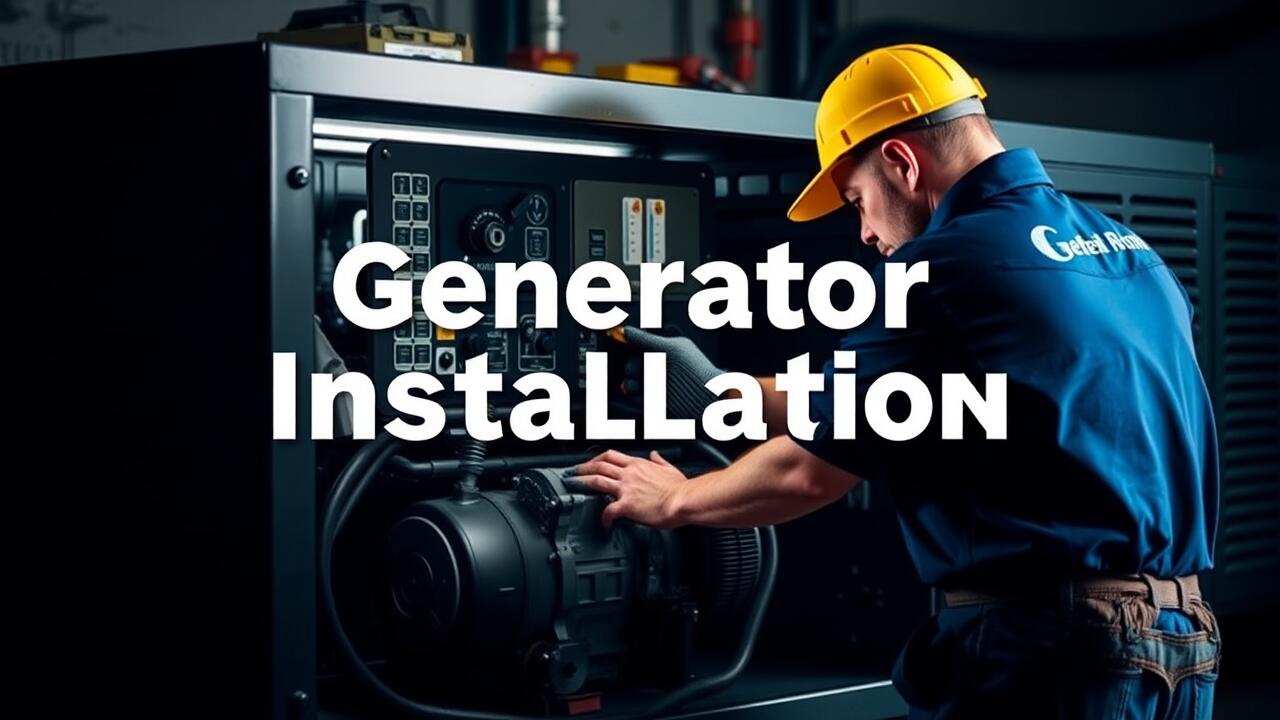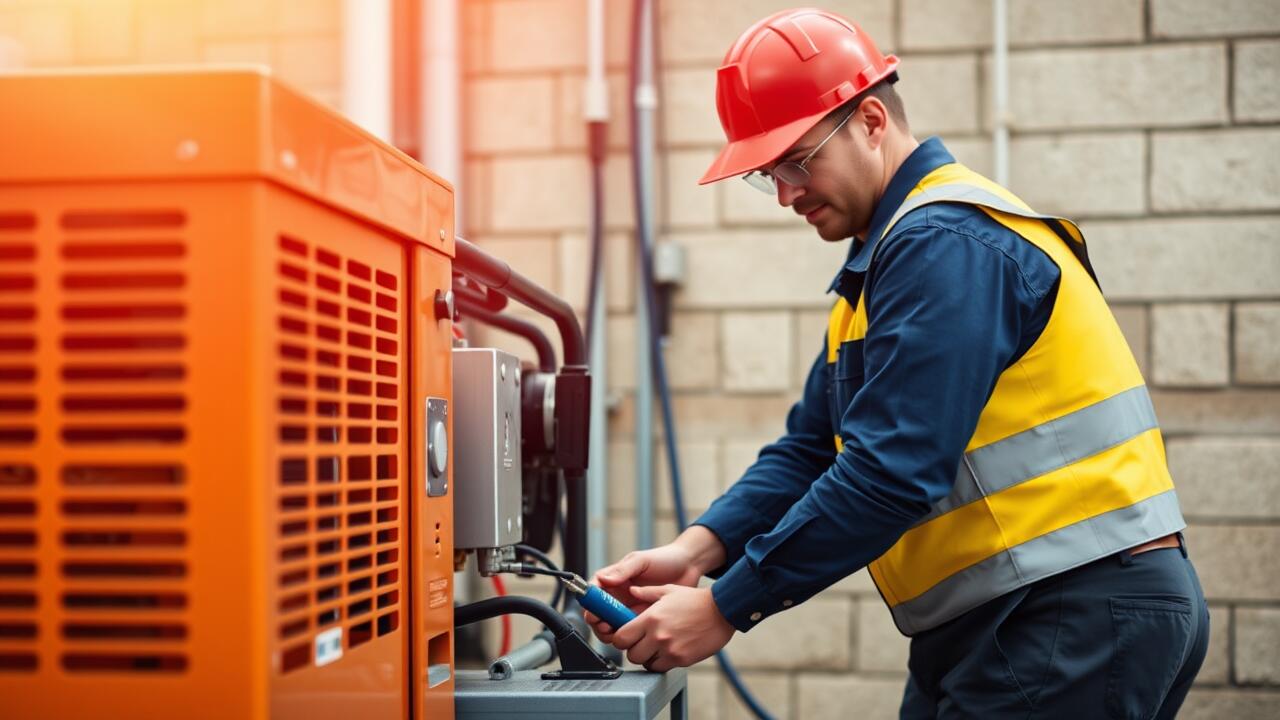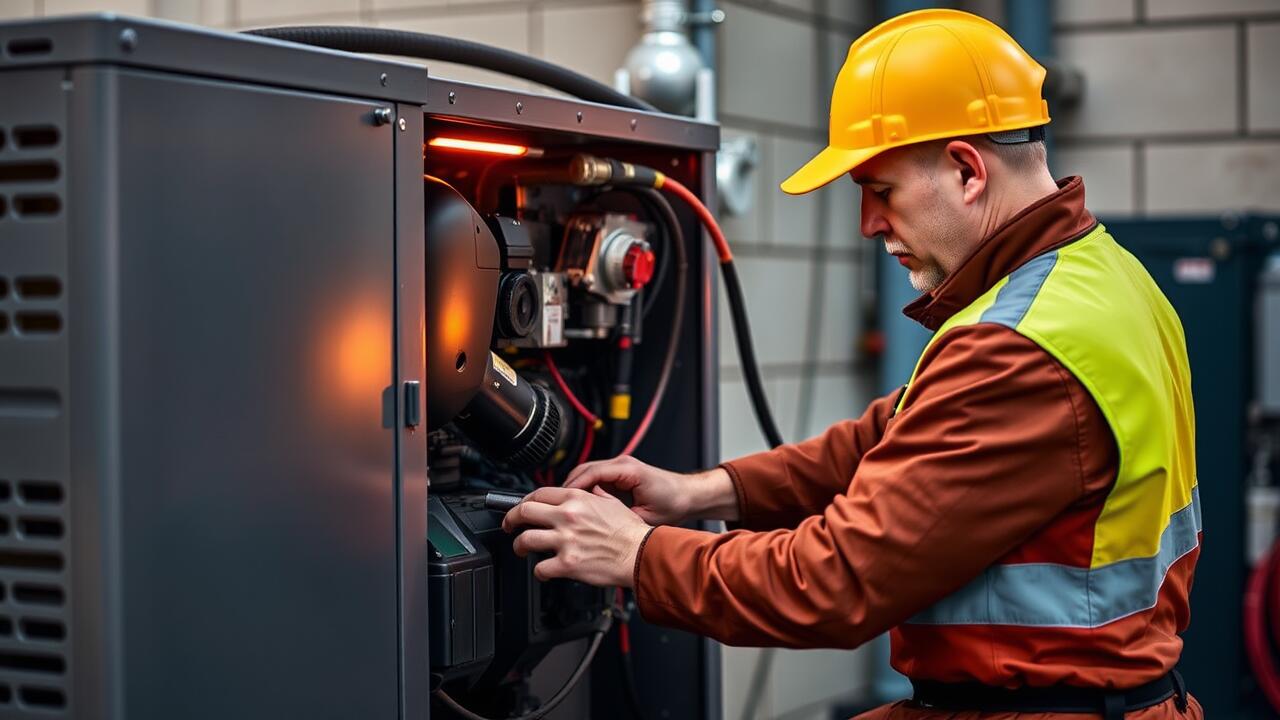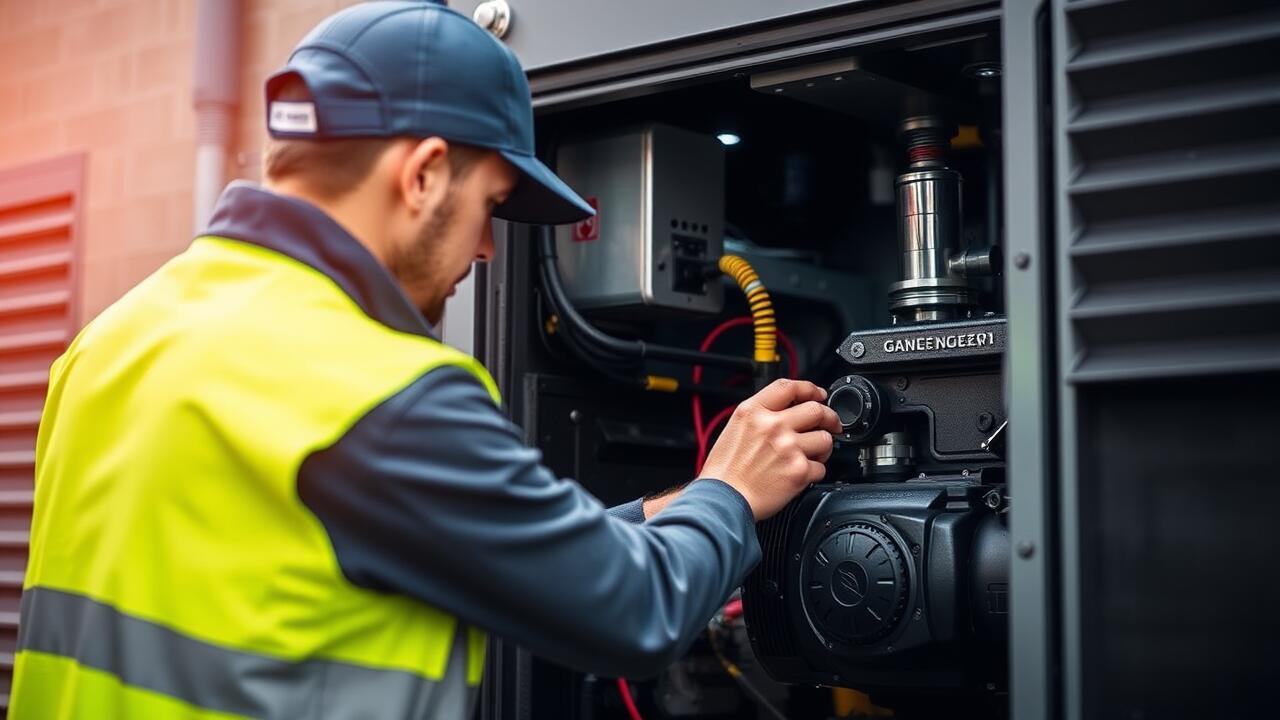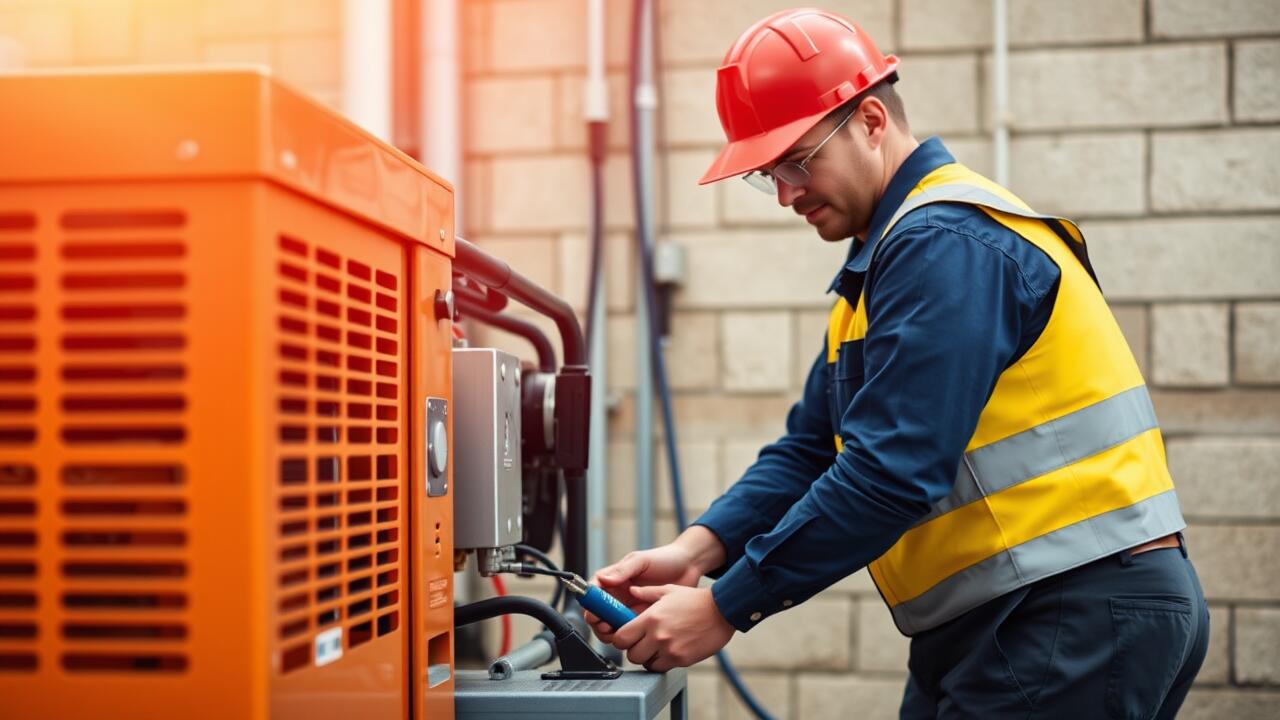
Using an Interlock Kit
An interlock kit offers a cost-effective solution for safely connecting a generator to a home’s electrical system. This device works by allowing the main circuit breaker to be locked out when the generator is in use. Homeowners can power selected circuits without the risk of backfeeding electricity into the grid, which can be dangerous for utility workers. The installation typically requires minimal alterations to the existing electrical panel, making it a practical option for many households.
For those looking for professional assistance, Montrose, Houston Generator Installation provides comprehensive services to help with the setup of an interlock kit. Their team can ensure that your generator connection is not only effective but also meets local electrical codes. By opting for this method, homeowners can achieve a safe and reliable way to utilize their generators during power outages, enhancing both convenience and peace of mind.
Benefits and Installation Process
Using an interlock kit to connect a generator to your home offers several benefits. This method provides a safe and efficient way to backfeed power during outages. It eliminates the need for a transfer switch, allowing homeowners to comply with local codes conveniently. The installation is often more straightforward and cost-effective than other options, making it an attractive choice for many. Additionally, an interlock kit integrates seamlessly with existing electrical panels, which helps maintain the integrity of the original design.
The installation process typically involves securing the interlock kit to the circuit panel and ensuring that the designated circuits can be powered by the generator. Homeowners may want to seek professional assistance for Montrose, Houston generator installation to ensure that all safety standards are met. Proper installation helps prevent hazards associated with improper wiring and backfeeding electricity into the grid. By following the manufacturer's guidelines and local regulations, homeowners can confidently take advantage of their generator when needed.
Connecting a Generator to Your Home Wiring
Connecting a generator to your home wiring requires careful consideration of safety and functionality. The most common approach involves using a transfer switch, which prevents back-feeding electricity into the grid during a power outage. This is crucial for the safety of utility workers and the overall reliability of your power supply. Homeowners often explore options like an interlock kit or a manual transfer switch, both of which allow for secure connections to the home’s electrical system.
In areas like Montrose, Houston Generator Installation has become popular given the area's susceptibility to outages. Proper installation ensures that the generator can effectively power essential circuits in your home without overloading the system. Consulting with a professional can provide peace of mind, ensuring that everything is compliant with local electrical codes and standards.
Key Considerations for Safe Wiring
When considering the safe wiring of a generator to a home, proper preparation and knowledge are essential. It is important to assess your home’s electrical system and ensure compatibility with the generator you intend to use. Hiring a qualified electrician can help uncover any potential issues and guarantee that your installation will adhere to local codes and regulations. Regular inspections and maintenance of both the generator and the wiring system are critical in preventing hazards such as electrical shocks or fires.
In Montrose, Houston Generator Installation services often provide valuable insights into safe wiring practices. Ensuring that backups can be switched seamlessly without back-feeding into the grid protects utility workers and stabilizes the electricity supply. Using properly rated extension cords, circuit breakers, and transfer switches is vital. Employing these safety measures promotes not only personal safety but also the functionality of the generator during an emergency.
Evaluating Generator Fuel Options
When considering generator fuel options, it's essential to evaluate the availability and cost of the fuels in your area. Gasoline is generally the most accessible and affordable choice, making it a popular option for many homeowners. However, it has a limited shelf life, which can pose challenges during long outages. Propane is another viable alternative, known for its clean-burning properties and long storage duration. While it may require a larger upfront investment for tanks and connections, it offers convenience and can often power appliances more efficiently.
Diesel generators are also worth considering, especially for larger power requirements. Diesel fuel has a longer shelf life than gasoline and typically provides better fuel economy. However, diesel generators can be more expensive upfront and may require additional maintenance. In Gulfton, Houston Generator Installation, professionals can guide homeowners in selecting the most suitable fuel type based on specific usage needs and local fuel costs. Each option has its own advantages and disadvantages that should be carefully considered to ensure reliable power during an outage.
Comparing Gasoline, Propane, and Diesel
When choosing a fuel source for your generator, three main options stand out: gasoline, propane, and diesel. Gasoline is widely available and often the cheapest, making it a popular choice for many homeowners. However, it can become less accessible during emergencies, and its storage stability is significantly limited. Propane, on the other hand, typically offers better shelf life and is stored in tanks that can be refilled, providing convenience and reliability during power outages. Diesel fuels tend to be more efficient, producing more energy per gallon, but this option often involves higher initial costs and requires more extensive maintenance.
Evaluating the best fuel choice ultimately depends on individual needs and local availability. If you're considering Montrose, Houston Generator Installation, local suppliers can provide insight into which fuel options are most accessible and economical in your area. Assessing costs, convenience, and efficiency will help guide you in selecting the right fuel type for your generator. Each option presents its own advantages and challenges, making it crucial to align your choice with your specific requirements and preferences.
FAQS
What is the most cost-effective method to connect a generator to my house?
The cheapest method is typically using an interlock kit, which allows you to safely connect your generator to your home’s main electrical panel without the need for a transfer switch.
Can I use an extension cord to connect my generator to my home?
Yes, you can use heavy-duty extension cords to power specific appliances, but this method is less efficient and can be hazardous if not done properly. It’s recommended to use an interlock kit or transfer switch for safe integration.
What are the benefits of using an interlock kit?
An interlock kit is affordable, easy to install, and allows you to safely switch between utility power and generator power without risking backfeeding into the grid, which could be dangerous for utility workers.
Are there any safety considerations when hooking up a generator?
Yes, it’s crucial to ensure that the generator is properly grounded, the interlock kit is installed correctly, and you follow local codes and regulations to prevent electrical hazards.
How do I choose the right fuel type for my generator?
Consider factors such as availability, storage, and cost. Gasoline is widely available but has a shorter shelf life, while propane has a longer shelf life and is easier to store. Diesel engines tend to be more fuel-efficient but may have higher upfront costs.
